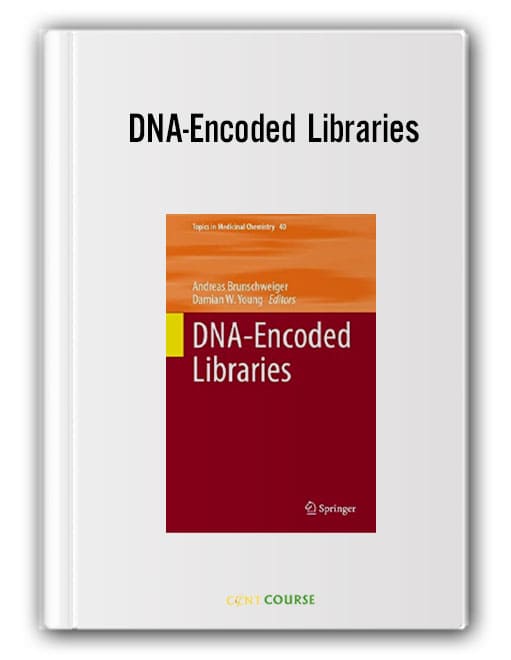DNA-Encoded Libraries (Topics in Medicinal Chemistry, 40)
Know more about the recent remarkable progression in DNA-Encoded Library (DEL) technology for drug discovery over the last decade.
DNA-Encoded Libraries (Topics in Medicinal Chemistry, 40) Description
As a highly effective alternative to high throughput screening (HTS), the DNA-Encoded Library (DEL) technology has been considered a ground-breaking advancement of technology, and its current progress has proved its valuable worth in any profession that makes use of drug discovery.
The book covers everything from the ground up, including the very basic concepts of the DEL process and its components to bench execution and clinical investigations. Even though the subject can be somewhat intimidating, DNA-Encoded Libraries makes sure that even graduate students can also follow the topics just like professionals do.
Here are what you will learn in this course:
- 1 – 1990-1991: Combinatorial Chemistry’s “Big Bang”
- 2 – Exploring Encoded Library Strategies for Synthetic Libraries
- 3 – High-Throughput Parallel and Combinatorial Synthesis (Without Encoding)
- 4 – What Is a Hit Molecule?
- 5 – Relationship Between Assay and Compound Purity Requirements
- 6 – Target Agnostic Libraries
- 7 – Focused Libraries
- 8 – Encoding Techniques
- 9 – Split and Pool Solid-Phase Synthesis of Libraries of Non-peptidic Oligomers
- 10 – Summary of Pre-DEL Combinatorial Chemistry Efforts
- 11 – The Maturation of Genetically Encoded Libraries
- 12 – Target Agnostic Solution-Phase DECLS
- 13 – Focused DECLS
- 14 – Conclusion
Related products
Free Download
Free Download
Free Download
Free Download
Free Download
Free Download
Free Download











